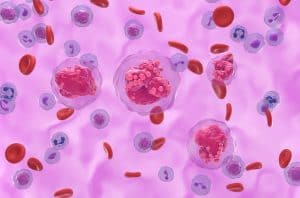
NICE release new guidance on rheumatoid arthritis treatment
pharmafile | June 10, 2021 | News story | | NICE, biosimilar, rheumatoid arthritis
NICE has today published final draft guidance for the treatment of moderate rheumatoid arthritis in patients who have not responded to conventional therapies.
Adalimumab, etanercept and infliximab, taken with methotrexate have been recommended for use within the NHS. Adalimumab and etanercept has also been recommended for use as monotherapy, when methotrexate is contraindicated or not tolerated.
This updated guidance is a change of stance on biologics from NICE, who previously only recommended biological treatments for severe rheumatoid arthritis.
In a statement, NICE said this was due to the increased availability of biosimilar medicine which lowers the cost of biological drugs considerably.
Biosimilar medicines are clinically proven to provide the same benefits as the original drug, but do not have the same costs as they biosimilar developers do not have to rack up the same R&D costs. To find out more about biosimilar use in the UK, take a look at the latest feature from this month’s edition of Pharmafocus, Biosimilars and Brexit.
The most likely cost effectiveness estimates completed by NICE, suggest that adalimumab, etanercept, and infliximab after two or more conventional disease-modifying antirheumatic (DMARDs) are now a cost-effective use of NHS resources for treating moderate rheumatoid arthritis.
The guidance also reviewed abatacept with methotrexate for treating moderate rheumatoid arthritis. However, because the most likely cost-effectiveness estimates for abatacept are higher than NICE normally considers cost effective, it was not recommended as an option for people with moderate disease.
Meindert Boysen, deputy chief executive and director of the Centre for Health Technology Evaluation at NICE, said: “I am delighted that we are able to recommend additional treatment options for people with moderate rheumatoid arthritis whose disease hasn’t responded to conventional treatments.
“These recommendations come after a pragmatic review of existing guidance in response to the availability of biosimilars in the NHS. We are pleased that the introduction of biosimilars has lowered overall costs of treatment, allowing our independent committee to recommend biological treatment for more people with rheumatoid arthritis so they can enjoy a better quality of life.”
The treatments have been recommended only if intensive therapy with two or more conventional DMARDS have not controlled the disease. The guidance also says the treatments must be provided at the same or lower price than those agreed with the Commercial Medicines Unit, who buy and secure medicines for NHS England, and if more than one treatment is suitable, treatment should be started with the least expensive drug (considering administration costs, dose needed and product price per dose).
Rheumatoid arthritis is an incurable chronic systemic inflammatory autoimmune disease in which the synovial joints, such as those in the hands and feet, become inflamed, causing pain, swelling, and stiffness.
The disease affects a total of around 400,000 people in the UK, with over 150,000 having moderate rheumatoid arthritis. This means over 15% of those people with moderate rheumatoid arthritis and who do not respond to conventional therapies are set to benefit from this recommendation. It is about two to four times more common in women than in men. It can develop at any age, but the peak age of onset in the UK is about 40–70 years. Rheumatoid arthritis is associated with increased mortality and increasing disability and can have a severe effect on quality of life.
Kat Jenkins
Related Content

NICE recommends migraine treatment for NHS use
The National Institute for Health and Care Excellence (NICE) has shared draft guidance recommending AbbVie’s …

GSK’s Jemperli recommended by NICE for endometrial cancer treatment
GSK has announced that the National Institute for Health and Care Excellence (NICE) has recommended …

NICE recommends SC treatment of AbbVie’s Tepkinly for patients with DLBCL
AbbVie has announced that the National Institute for Health and Care Excellence (NICE) has recommended …








